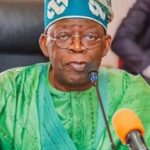[By Idowu Faleye: +2348132100608]
Today, Nigeria is grappling with economic instability, rising poverty, soaring inflation, crippling hunger, insecurity, and a currency in free fall. Underlying this troubling situation is a national disappointment that stems largely from irresponsible mismanagement of national resources. The administration of Buhari is at the heart of these issues, leaving behind a lingering legacy of resource mismanagement in Nigeria. Questions are now surfacing: is Buhari above reproach? Untouchable or shielded by the powerful?
Reflecting on this reminds me of a childhood friend’s surname, “Asorona”—the Yoruba word for “the untouchable.” Asorona is when someone is seen to be immune from consequences, whether from mischief or outright wrongdoing. In the same vein, Nigerians wonder if Buhari bears this cloak of invincibility. Despite claims of mismanagement and negligence under his rule, he remains a revered elder statesman, free of scrutiny and consequence. This piece delves into Buhari’s legacy of mismanagement of national resources, explores how Nigerians have been affected, and questions the silence of current leaders and all the country’s elites.
Read Also: The Hard Way is the Only Way for Sustainable Economic Recovery in Nigeria
The economic deterioration and societal unrest plaguing Nigeria’s citizens can be attributed to the alarming level of poor handling of national resources under Buhari’s administration. Today, the inflation rate surged sporadically, food prices skyrocketed, and the poverty rate ballooned, leaving an estimated 130 million Nigerians living in multidimensional poverty. Analysts argue that Buhari’s administration pre-sold billions of dollars worth of crude oil, robbing future governments of critical revenue. The impact of this decision, combined with unrestricted access given to certain powerful individuals within his administration, has destabilized the economy, with repercussions that could last for decades.
In an attempt to manage immediate budgetary needs, Buhari’s administration pre-sold future crude oil revenues. The short-term effect may have softened some budgetary blows, but the consequences are devastating. Oil revenues, which should support long-term economic stability, were instead compromised, leaving little for future administrations to work with. As oil prices waver on the global market, Nigeria now faces an enormous financial strain, a ticking economic time bomb that could result in even more devaluation of the naira. This approach has left Nigeria perilously close to economic disaster, all in exchange for short-lived fiscal comfort.
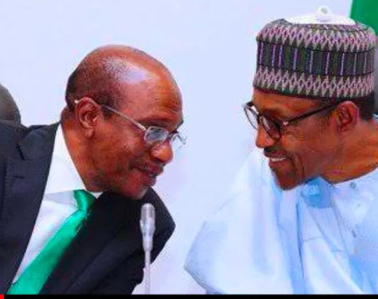
From 2016 to 2022, Nigeria earned ₦26.67 trillion in revenue but spent a staggering ₦60.64 trillion, leaving a deficit of ₦33.97 trillion. Domestic debt rose from ₦8.84 trillion in 2015 to ₦44.91 trillion by June 2023, while external debt skyrocketed from $7.35 billion to $37.2 billion. By 2022, debt-servicing costs consumed nearly 96% of national revenue, straining fiscal sustainability and leaving the economy vulnerable.
The Central Bank’s efforts to finance deficits by excessive money printing fuelled the current inflation, eroded the naira’s value, and exacerbated poverty. The naira’s value is in free fall against the dollar, causing the prices of imported goods, including essential commodities, to soar. With the local currency increasingly worthless, Nigeria faces escalating inflationary pressures that punish both the poor and middle-class citizens, shrinking their purchasing power. Despite aggressive monetary tightening policies of the present government, Inflation surged to 22.5% by 2023, with food inflation peaking at 24%.
In spite of social intervention programs, living standards continued to decline- over 133 million Nigerians fell into multidimensional poverty, highlighting policy inefficiencies and resources mismanagement by Buhari’s administration. The administration spent over ₦10 trillion on fuel subsidies, delaying subsidies removal despite rising oil prices. This loaded public finances without addressing structural issues in the energy sector, further depleting resources for critical investments. The economic data speaks volumes, revealing an unstable nation with limited prospects for recovery without stringent reforms.
During Buhari’s tenure, accusations of corruption were rife. His administration was marred by allegations of rampant corruption within his inner circle, with his Attorney General, close aides, and Central Bank Governor frequently implicated. Pictorial images emerged of Buhari’s CBN Governor bowing before Buhari’s uncle, hinting at a troubling hierarchy of influence over national financial policies. Even more disturbing were persistent rumors that his close associate, Aba Kyari shipped trillions of naira worth of crude oil to an Asian country before his death. Stories of powerful aides controlling the administration’s purse strings and allegations of misappropriated oil revenues painted a grim picture of governance. Such displays reveal a troubling erosion of accountability, where power was wielded without checks, and the public treasury was at the mercy of a few.
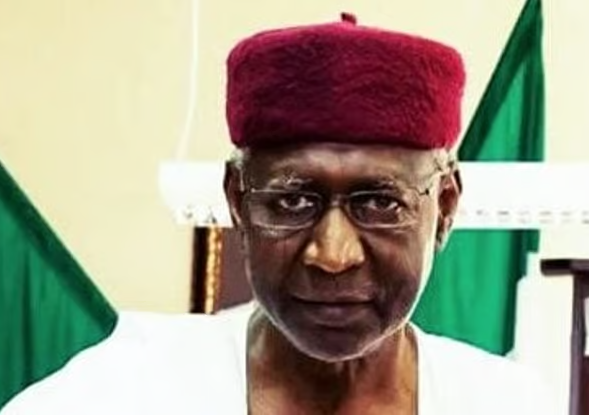
Instead of prioritizing national interests, Buhari reportedly fostered an environment where selective justice prevailed, further deepening divisions within the country. Security challenges worsened during Buhari’s administration, with insurgent groups gaining ground and law enforcement reportedly compromised by ethnic and religious biases. Security concerns worsened under Buhari, as insurgent groups reportedly operated with impunity across Nigeria. His administration has been criticized for showing leniency toward certain extremist groups, which allegedly received softer treatment compared to others.
Even police officers reportedly hesitated to arrest individuals from favored groups, fearing repercussions. Buhari’s reluctance to address these security issues impartially has further weakened national unity. This double standard in handling national security issues fueled a wave of resentment among Nigerians, who felt that religious and ethnic affiliations were prioritized over the safety and well-being of citizens. His suspicions of favoritism towards certain regions have created a legacy that Nigeria now struggles to overcome.
Buhari was accused of bias in appointments throughout his administration, flouting Nigeria’s Federal Character principle that ensures equitable representation of ethnic groups in government roles. Buhari’s selections frequently skewed in favor of his ethnic group, disregarding Nigeria’s fragile political balance and reinforcing resentment among marginalized groups. His efforts to secure the presidency for the northern region, even as his tenure ended, showcased a disregard for the rotational presidency model that had been essential for Nigeria’s unity. Such actions left many Nigerians feeling alienated, as tribal and regional divides deepened. This perception of bias undermined Nigeria’s Federal Character principle and weakened the bonds necessary for national cohesion.
In the wake of Buhari’s departure, favoritism of Buhari’s administration to the people of his ethnic group extends beyond Nigeria’s borders. Allegations of favoritism toward the Niger Republic came to light when Buhari constructed roads and railways linking the Niger Republic. Videos also surfaced, towards the end of his tenure, showing Nigerian taxpayer-funded jeeps being transported across the border to Niger. This move left many Nigerians questioning his priorities, as questions arise over his loyalty: Was Buhari more committed to the Niger Republic than Nigeria?
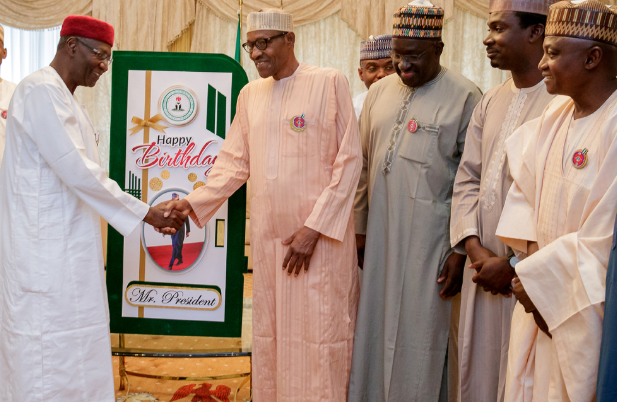
Buhari’s legacy has left Nigerians, especially the youth, questioning what lies ahead in a future where economic hardship becomes the new normal. Buhari’s tenure was marred by decisions that compromised Nigeria’s economic stability. The pre-sale of future crude oil revenues offered temporary relief but robbed subsequent administrations of critical funds. Meanwhile, unchecked currency printing fuelled inflation, shrinking the purchasing power of millions.
Yet, as Nigeria faces the consequences of these actions, Buhari remains largely shielded from scrutiny—a status reminiscent of the Yoruba termAsorona,meaning “the untouchable.” Buhari has faced little to no culpability. Despite widespread economic challenges and allegations of corruption, current leadership, including President Bola Tinubu, has avoided probing Buhari’s administration, prioritizing party unity over justice. However, without addressing past mismanagement, Nigeria risks perpetuating cycles of corruption and neglect.
Read Also: Outdated Laws, Modern Realities: The Urgent Need to Modernize Nigeria’s Legal Framework
Nigeria’s current leadership has shown little inclination to investigate his predecessor administration’s alarming mismanagement. President Bola Tinubu, despite the immense challenges his government inherited, has refrained from probing Buhari’s legacy, a stance that many perceive as an attempt to maintain party harmony. This silence leaves Nigerians wondering if the nation ever hopes to improve its future.
As Nigerians grapple with an uncertain future, the question of accountability looms larger than ever. Buhari’s legacy of economic and social challenges serves as a stark reminder that Nigeria’s leaders must be held accountable for their actions. It’s a call for citizens to prioritize national interests over personal affiliations, and to demand integrity and justice from those in power.
To secure a brighter future, Nigerians must look beyond tribe, religion, and political loyalty. Only by fostering a united front and demanding transparency can the nation overcome the legacy of mismanagement and lay the foundation for a more prosperous future.
In the quiet weight of this moment, Nigeria stands at a crossroads. The new government has a profound choice to make: either to uphold the promises enshrined in the constitution and serve the millions who have suffered under failed leadership or to cling to allegiances that have kept our nation bound in corruption and decay. This is not merely a matter of politics; it is a moral call to restore the trust of battered people who deserve accountability and a future of dignity.
The masses have borne the pain of reckless decisions, the shattered dreams from decades of neglect, and the stinging betrayal of unchecked power. To sweep the past under the rug for the sake of allegiance to any individual would be to abandon the very oath taken to defend and protect this country. Probing the former president’s actions is not just a demand for justice but a plea for national healing, for a Nigeria where leadership means responsibility, where governance serves the people. The nation watches with both weariness and hope, yearning for a government that places loyalty to Nigeria and its people above all else.
Read Also: Nigeria’s Wicked Generations: From Slave Traders to Corrupt Youths
To move forward, Nigerians must embrace a collective vision that transcends tribal, religious, and political divides. Holding leaders accountable is essential for building trust and fostering a culture of integrity in governance. Only by prioritizing national interests can Nigeria overcome the legacy of mismanagement and pave the way for a brighter future.
The nation watches with both trepidation and hope, yearning for leadership that values responsibility and transparency. Buhari’s legacy serves as a stark reminder of the consequences of unchecked power, highlighting the urgent need for reforms that put Nigeria and its citizens first.
Nigeria’s predicament isn’t solely due to leadership failures. The country’s citizens, too, lack a unified vision of loyalty and patriotism. For many Nigerians, the nation is a “fatherland” to be plundered rather than a “motherland” to cherish. Allegiance is divided along lines of tribe, religion, and politics, with national interests often taking a backseat. The lack of collective ownership has allowed leaders to escape accountability, further perpetuating cycles of neglect and corruption.
Read Also: The Hidden Margins Between Politics and Governance in Nigeria
Nigeria’s challenges are immense. By demanding accountability and fostering unity, Nigerians can chart a course toward a prosperous future. The path forward lies not in shielding past leaders but in learning from their failures to build a nation where governance truly serves the people. This is a defining moment—a call to action for leaders and citizens alike to rise above divisions and commit to the collective good. Will Nigeria answer that call? Only time will tell.
References:
Nigeria’s Fiscal Dilemma: Debt, Development, and Reform
Author: Olusegun Adeniyi
The Politics of Mismanagement: Governance and Accountability in Africa
Author: Akin Adebayo
Corruption, Accountability, and National Unity in Nigeria
Author: Funmi Adediran
Idowu Faleye:Ekiti-born Policy Analyst, IBM-certified Data Analyst, and Lead Analyst at EphraimHill Data Consult. Publisher of EphraimHill DataBlog, addressing topics of public interest. Reach him via WhatsApp at +2348132100608 or email ephraimhill01@gmail.com.
© 2024 EphraimHill DC. All rights reserved.



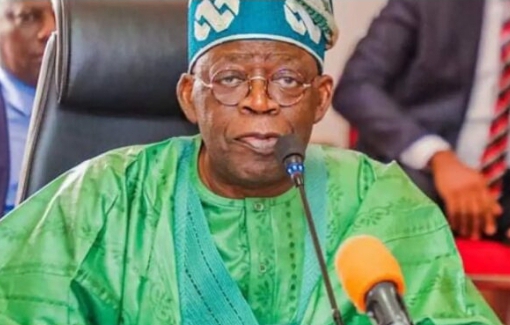







































![The Trend of Insecurity in Nigeria. [Part 2]](https://ephraimhilldc.com/wp-content/uploads/2024/09/Computer-Monitoring-of-Remote-areas.png)


































